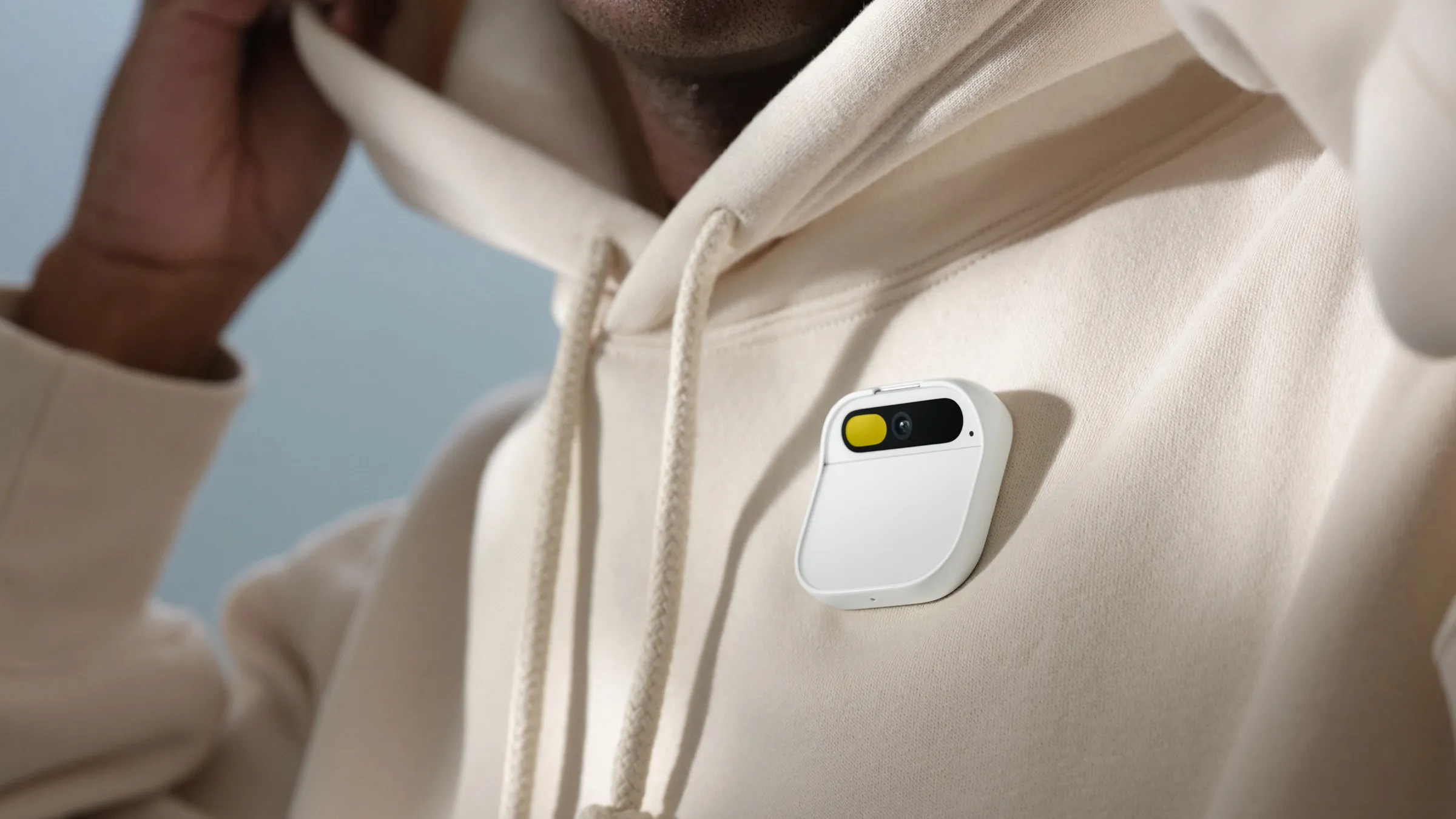The Humane AI Pin
— Humane have released their device, an AI-powered pin you can wear on your jacket. It’s voice activated, answers questions, makes phone calls, and plays music. It costs 699 US dollar and requires a $25 per month subscription.

Om Malik puts this devices in a long history of advancements in computing and hard-ware design, one where devices got small over the years and more powerful at the same time:
Computing as we know it has been ever-evolving—every decade and a half or so, computers get smaller, more powerful, and more personal. We have gone from mainframes to workstations, to desktops, to laptops, to smartphones. It has been a decade and a half since the iPhone launched a revolution.
Smartphones changed personal computing by making it “everywhere.” Personal computing, as we know it, is once again evolving, this time being reshaped by AI, which is making us rethink how we interact with information. There are many convergent trends — faster networks, more capable chips, and the proliferation of sensors, including cameras.
The computer I’m using to get work done, hasn’t significantly shrunk in over 25 years. Sure the Samsung laptop I bought in 2001 was heavier, noisier and a little more clunky than my current MacBook but I still need a backpack to carry it around. Smartphones are lifestyle devices. I can check my emails and respond on Slack while I’m on a train, but my productivity wouldn’t significantly suffer if I still used a feature phone. Neither will Humane’s AI pin increase my productivity.
But Om Malik is right. Eventually the devices we carry around when we’re out and about won’t have a screen, and they will use AI for many tasks that we have apps for today. I can already see us walking around, staring at our palms, gesturing into the void, randomly asking questions to our new imaginary friends.
I’m having a hard time taking this product seriously, given how the founders like to present themselves. Erin Griffith and Tripp Mickle, writing for the New York Times:
A Buddhist monk named Brother Spirit led them to Humane. Mr. Chaudhri and Ms. Bongiorno had developed concepts for two A.I. products: a women’s health device and the pin. Brother Spirit, whom they met through their acupuncturist, recommended that they share the ideas with his friend, Marc Benioff, the founder of Salesforce.
Sitting beneath a palm tree on a cliff above the ocean at Mr. Benioff’s Hawaiian home in 2018, they explained both devices. “This one,” Mr. Benioff said, pointing at the Ai Pin, as dolphins breached the surf below, “is huge.”
A Buddhist monk? A house in Hawaii? Dolphins? This reeks of Californian hippie pretentiousness. Is it too much to ask for a little journalistic distance so these scene-setting stories conceived by Humane’s communications people don’t find their way into The New York Times? Imran Chaudhri and Bethany Bongiorno aren’t hippies who want to better the world, they are products of their capitalist environment and will act accordingly going forward.
The lingo ties in nicely with the marketing speech that we’ve known for years from Californian soon-to-be-unicorns, which has been parodied ad nauseam, most prominently by the sitcom Silicon Valley. The founders want to make the world a better place, here by ridding us of our addiction to our smartphones. Erin Griffith and Tripp Mickle, again:
Humane’s goal was to replicate the usefulness of the iPhone without any of the components that make us all addicted — the dopamine hit of dragging to refresh a Facebook feed or swiping to see a new TikTok video.
That’s worthwhile goal. But it doesn’t need a new 700 dollar device. You can start by deleting social-media apps from your phone, and limit notifications.
Humane’s AI pin solves a problem I don’t have. Instead, I fear, it might amplify another problem I do have: Inconsiderate fellow humans playing their TikTok streams and music on loudspeaker wherever they sit down, or have video calls on speakerphone in the supermarket. The AI pin incentives more of that behaviour. You don’t even have to pull out the device from your pocket and hold it in your hands anymore while you annoy everyone around you. If Humane wanted to make a real impact on the world, my world anyway, then they’d train their AI to recognise when the user is in a public space and force them to use headphones.